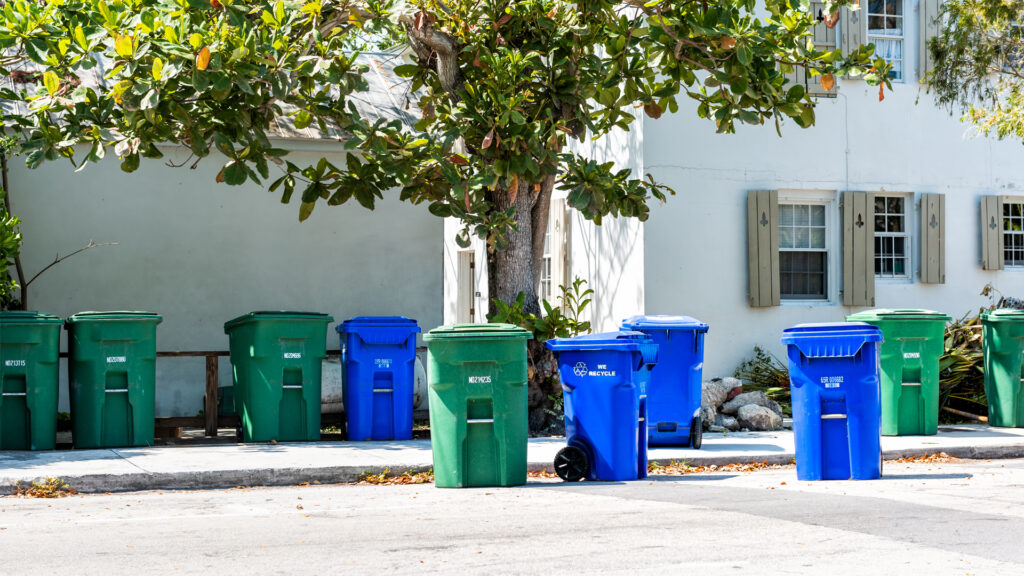By Karen Dooley, University of Florida
Curbside recycling can compensate for the greenhouse gas emissions from garbage destined for landfills, says a new study that encourages towns and cities to continue offering recycling services to meet their climate goals.
The study’s authors took a deep dive into the economic and environmental value of community recycling efforts and compared it to the value of other climate change mitigation practices. They concluded that recycling provides a return on investment similar to or better than environmentally friendly strategies like transitioning to electric vehicles or purchasing green power, which is electricity from clean, renewable energy sources.
“Eliminating recycling squanders one of the easiest opportunities for communities and citizens to help lessen the impact of climate change and reduce our demands on natural resources,” said Timothy Townsend, a professor of environmental engineering sciences at the University of Florida and one of the study’s authors. “Recycling won’t solve the problem alone, but it is part of the puzzle.”
Towns and cities across the country have canceled or scaled back recycling programs due to rising costs. Recent restrictions on recyclable material collected by major international markets have contributed to the cost increase, according to the study, which was published Monday in Nature Sustainability.

Townsend and Malak Anshassi, of Florida Polytechnic University, set out to assess how much more expensive recycling is compared to garbage collection only and to see if the resale value of recyclables was at any time sufficient enough for the program to pay for itself. They also analyzed the role residential recycling plays in reducing greenhouse gas emissions and conserving natural resources.
When recycling markets were most lucrative in 2011, U.S. recycling costs were as little as $3 a year per household. Beginning in 2018 and through 2020, tighter restrictions went into place and the COVID-19 pandemic disrupted the markets, and the cost for recycling ranged from $34 to $42. The study asserts that even with higher costs, the investment offsets the greenhouse gas emissions from non-recycled waste buried in landfills.
Townsend and Anshassi say that if local governments restructure their curbside recycling programs to target materials with the greatest market value and the highest potential for carbon offset, recycling can pay for itself and reduce greenhouse gas emissions. They identify higher-value materials as newspaper, cardboard, aluminum and steel cans, and HDPE and PET plastic bottles.
“Recycling is a public service provided by local governments to their residents, just like providing water, sewer, roads,” Townsend says. “It is a service that does have an expense, but it always has. I would argue that it does not cost much when you compare it to other services we pay for, and when markets are good, you hardly pay anything.”
Researchers also suggest that local and state governments could implement policies to help relieve the cost burden of recycling, like establishing a minimum amount of recyclable materials that manufacturers must use in packaging or products and placing some of the responsibility for recycling costs on the manufacturers.
“If we learn collectively to recycle better, we can reduce the costs to pretty much break even,” Townsend says. “From an environmental perspective, that’s a good return on your investment.”
For details into the researchers’ analysis and modeling approach, view the study here.
This piece was originally published at https://news.ufl.edu/2023/05/curbside-recycling-benefits/
Sign up for The Invading Sea newsletter by visiting here.



